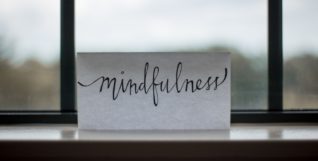
6 Well-being tips for winter months
- January 28, 2019
- Marketing Team
The winter can sometimes really take a toll on your mental well-being. In fact, it is estimated that 1 in 15 people in the UK will suffer from seasonal affective disorder (SAD) between September and April. Also known as ‘winter depression’, SAD shares many of the same symptoms as major depression, including persistent sadness, sleep problems, lethargy, apathy, social withdrawal, and loss of interest in activities you used to enjoy (which is called anhedonia).
Working in the winter can also be tough. As the days become shorter, it may be dark on your way to work and dark when you leave work. And the less you expose yourself to sunlight, the more likely you are to feel your mental well-being affected. There is a body of research suggesting that vitamin D deficiency (from lack of sunlight) is linked to low mood.
This is why it’s crucial to take some actionable steps during the winter that will help to protect your mental health. You can’t make the days longer or sunnier, but there are many things you can do that can help brighten your mood.
Go outside during your lunch break
It can be tempting to stay inside the office during your lunch break. After all, the office is warm (hopefully!) and outside it may be biting cold. However, if you don’t spend at least some of your lunch break outside, then you may not receive any sunlight during the day (as already mentioned, it may be dark in the morning and by early evening). In order to maintain adequate levels of vitamin D, it’s recommended that you expose yourself to sunlight for 15-30 minutes, two to four times a week.
So wrap up warm and go for a walk somewhere. A brisk walk in itself is an effective way to boost your mood. And these mood-boosting effects will be heightened if you walk in natural surroundings.
Don’t isolate yourself
People in the winter tend to ‘hibernate’ a bit, staying indoors a lot of the time, and not being as outgoing as usual. That’s understandable. It’s just not as fun or enjoyable to be out and about when it’s freezing. But there is a danger in becoming more isolated over the winter. This is because social isolation tends to worsen your mental health.
Make sure that you don’t stop meeting up with friends or going out just because it’s cold and grey. The weather is always bearable so long as you have the right kind of clothing.
The winter is a time for enjoying indoor activities and hobbies. Also, there’s no better feeling than bearing the cold and ending up somewhere warm and cosy.

Travel somewhere warm
Breaking up the winter with a holiday somewhere warm and sunny can be a great way to boost your mood. It gives you something to look forward to and will most likely feel pretty incredible in contrast to the weather back home. Luckily, there are many cheap flights from the UK to warmer destinations over the winter period. In November, places like Andalusia in Spain and Morocco will still be warm and pleasant, with plenty of sunshine.
Diet
There may be weeks when the sun just doesn’t come out at all. This is why it’s important to include foods rich in vitamin D3 in your diet. (Vitamin D3 is what is produced when you expose your skin to sunlight and it is considered more important for health than vitamin D2 – although you do need both.) Many foods, such as cereals and milk, are fortified with vitamin D3, so be sure to include them as a regular component of your diet.

Try light therapy
Some people who struggle with SAD find that light therapy helps to reduce their symptoms. Light therapy involves sitting by a special kind of lamp, called a light box, which emits ultraviolet (UV) radiation. This is the same kind of light emitted by the sun and so it stimulates the production of vitamin D. However, there is limited evidence about the effectiveness of light therapy. Nevertheless, many people find that it helps. So try it out and see if it makes a difference to your mood. It’s important to note that side effects from light therapy include headaches, eye strain, tiredness, and blurred vision.
Supplementation
Another option is to take a vitamin D3 supplement. Vitamin D is essential for bone health and a well-functioning immune system, but be careful you don’t take too high a dose of a vitamin D supplement. This can entail some unwanted side effects. Also, like with light therapy, there are mixed results about whether taking a vitamin D supplement helps to combat SAD. It seems that sunlight and dietary sources of vitamin D are superior to supplementation.
Working through the winter doesn’t have to be a miserable experience. If you incorporate these recommendations into your lifestyle, then you will be able to protect your mental well-being during the winter period.
See our blog on great winter destinations.
Written by Sam Woolfe. Sam is particularly interested in self-development, psychology, mental health, and the future of work. Most of all, though, Sam is passionate about helping people find work that is meaningful and fulfilling. You can follow him on Twitter and find more of his work at www.samwoolfe.com.







